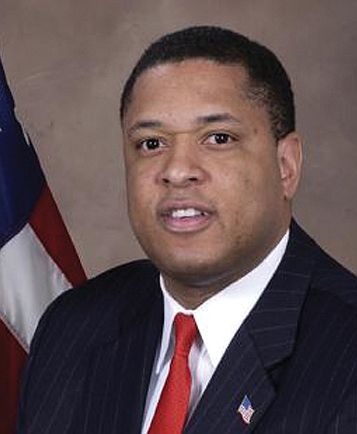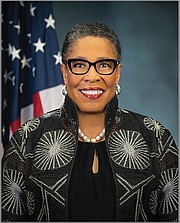RRHA prepares to launch home-buying initiative
Jeremy M. Lazarus | 7/27/2023, 6 p.m.
Richmond is preparing to become the first place in the country to test a revamped federal regulation aimed toward making it easier for people who hold housing vouchers or live in public housing to buy homes.
Describing it as a “groundbreaking and historic initiative” that would build wealth for those who qualify, Steven B. Nesmith, the chief executive officer for the Richmond Redevelopment and Housing Authority, Monday briefed City Council on the program he said would be up and running before the end of the year.
Mr. Nesmith said the program would open the home purchase door for employed people who have strong payment histories, but have been shut out of the housing market due to poor credit, lack of savings for a down payment and other barriers.
The key to the program, he said, is the new regulation President Biden’s administration has put in place that allows mortgage lenders to ignore credit scores and consider home loans to people who have covered their monthly share of government-subsidized rent for two years or more without missing a payment.
Jumping on that idea, he said that RRHA is creating partnerships with lenders, non-profit housing groups and public entities in developing a comprehensive program that would eliminate down-payment as well as closing costs and mortgage insurance and offer reduced interest rates to buyers.
It is not yet clear how many people would qualify. RRHA provides subsidized housing to nearly 6,000 individuals and families, with about 3,200 of those in public housing and the remainder holding vouchers.
At least half the families in public housing are listed as in arrears on rent, according to RRHA.
Still, Mr. Nesmith said such mortgage lenders as Bank of America, Truist, Virginia Credit Union and Peoples Advantage Federal Credit Union have agreed to participate in using rental payments and on-time utility payments as the determinant of credit for a home purchase.
He said the program also will team with the state Department of Housing and Community Development and the city to assist the program. Both have funding to cover much of the upfront costs of a purchase.
For example, the city has set aside an initial $2 million in seeking to meet a goal of helping 2,000 lower-income families and individuals become homeowners by 2030. That’s in addition to funding the city provides yearly to several nonprofits to provide down payment assistance.
Mr. Nesmith said that RRHA also is working with entities like Southside Community Development & Housing Corp. to boost the supply of homes that would be affordable.
SCDHC just completed and sold eight homes on Perry Street in South Side for $195,000 apiece, or about half Richmond’s market price for a for-sale home. Those who purchased also received down payment assistance.
RRHA already has a small homeownership program that relies on federal rules that allow people to use Housing Choice Vouchers in a rent-to-own program.
Mr. Nesmith said the new initiative would expand the program to more people and provide a wider range of assistance to potential home buyers.
Along with paying rent timely, applicants also would need to show they have held a full or part-time job for at least two years or more and have sufficient household income to handle a mortgage.
Those who qualify for the new program also would have to complete financial and home buyer education courses to ensure that they could pay their house debt and maintain the property, Mr. Nesmith said.
He said RRHA is moving ahead to hire a mortgage and loan coordinator to get the program off the ground.
Mr. Nesmith said that he has been told that Marcia Fudge, U.S. secretary of housing and urban development, regards the Richmond program as a potential model for housing authorities across the nation.
On HUD’s website, Secretary Fudge states that “policies and programs that can adapt to meet a community’s unique housing challenges,” are needed.
Pledging to make home ownership a reality for more Americans, Secretary Fudge also seeks to eradicate the growing homelessness issue, put an end to discriminatory practices in the housing market, and ensure that our fair housing rules are doing what they are supposed to do: opening the door for families who have been systematically locked out for generations to buy homes and have a fair shot at achieving the American dream.”








